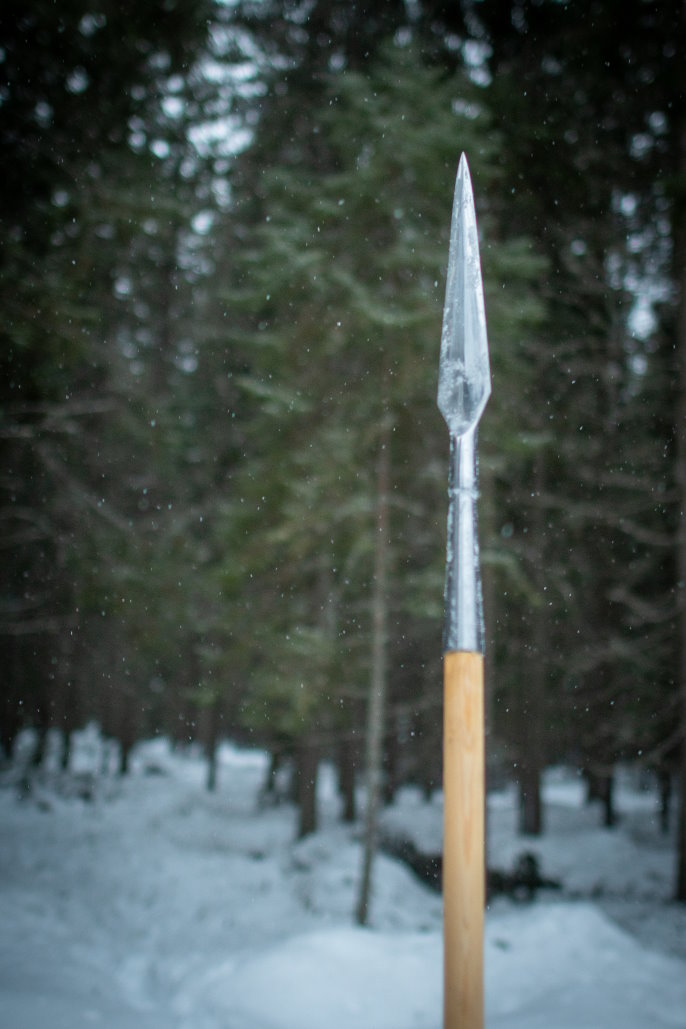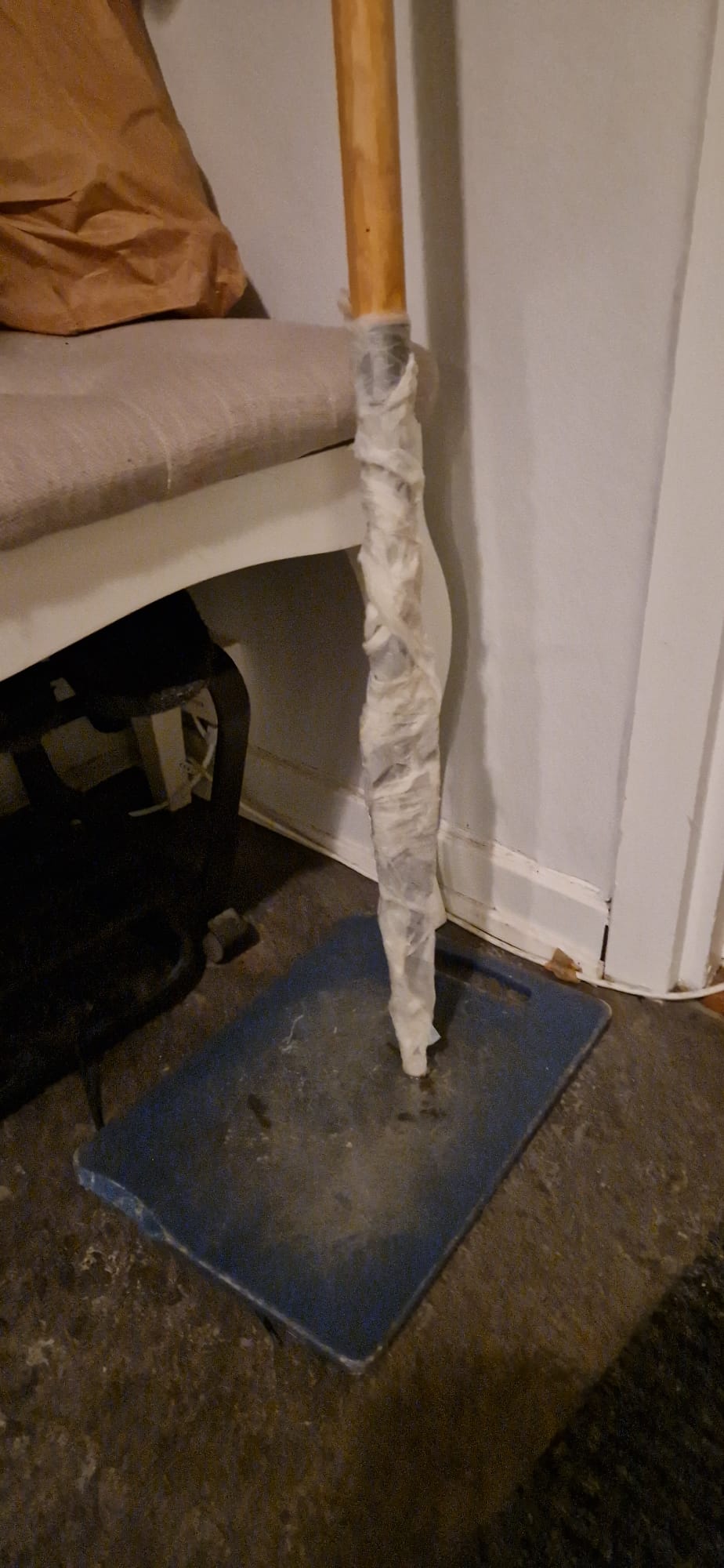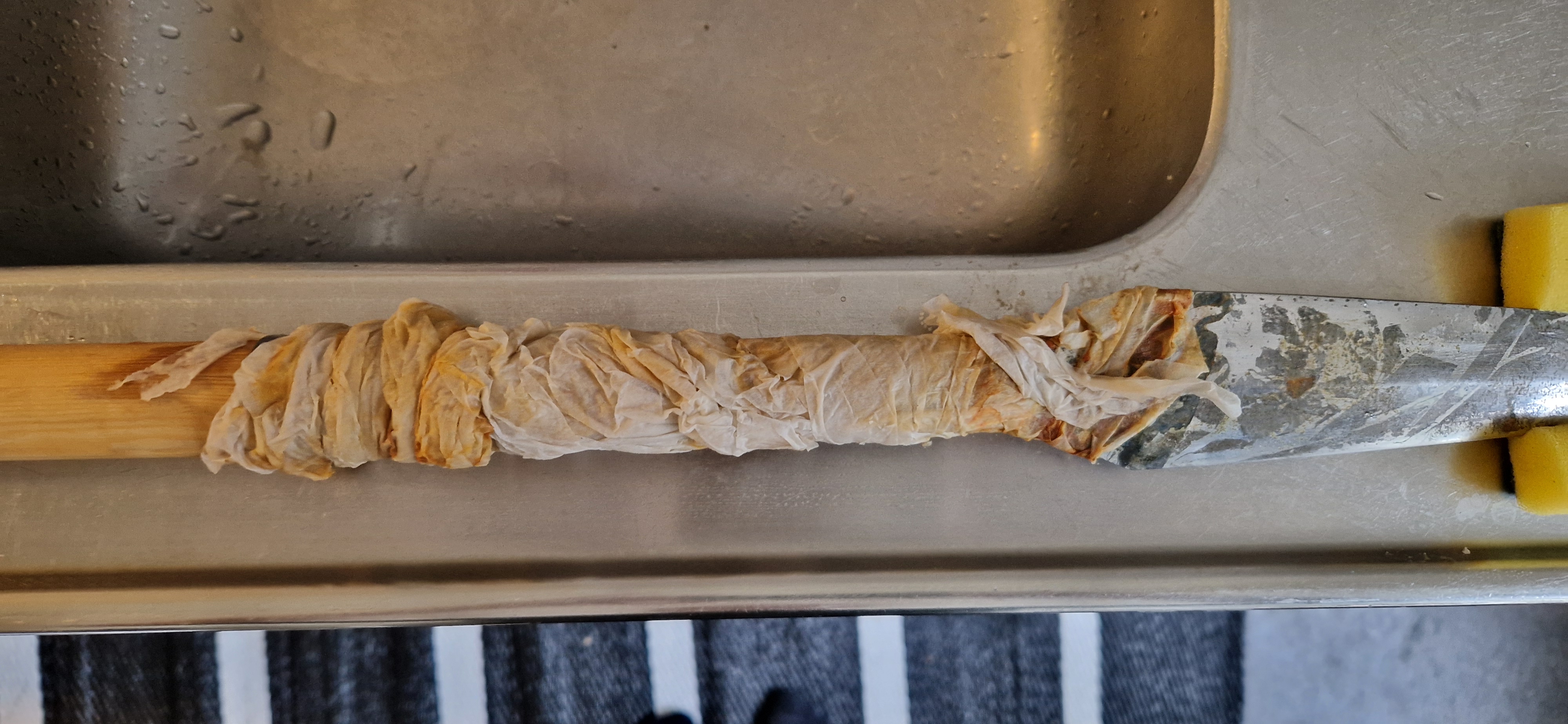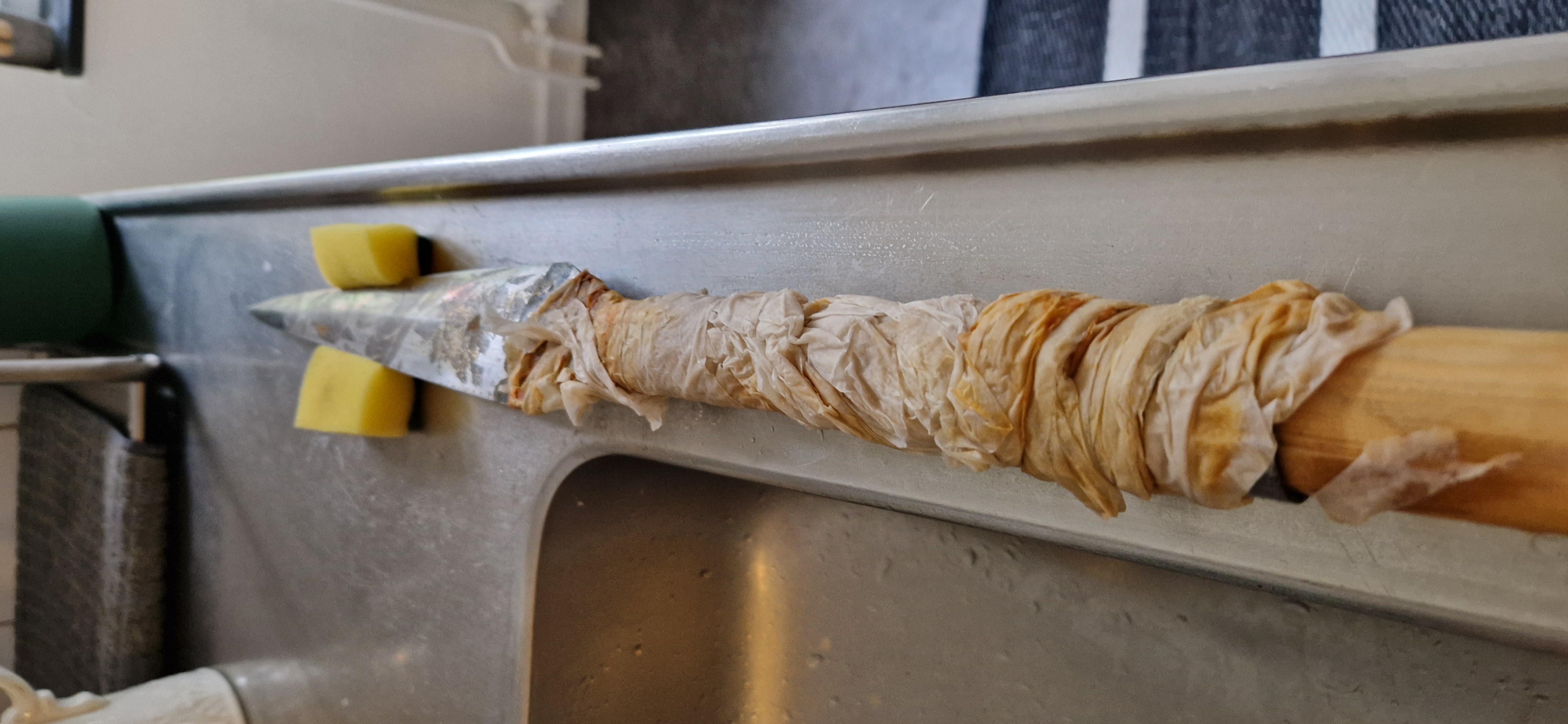Rusting stuff
Yes, I know what you are thinking. Who ever want to intentionally make stuff rust?
Sooner or later things will rust anyway. The hard part is keeping the rust away.
Well, in my type of reenactment where we depict and attempt to try the life of a late 14:th century soldier rust could be a good thing.
Iron and steel was valuable stuff. It took time to harvest the iron ore. It took time to build furnaces to make iron. It took time to produce charcoal for making iron - and by then we only got iron or steel. We still haven't even started producing any item from the raw material.
Most stuff probably was around for many years, possibly passed down to others or sold on when a chance to upgrade the equipment appeared.
This make the use of brand new shiny armor or weapons look strange. Hence, the rusting attempts.
First successful attempt: Years with several week long stays in tents
My first armour got rusty enough from being brougt and used at medieval camps and sites for years. It took a few summers living a few weeks a year in tents, with the armor sometimes lying in the wet or moist grass over night.
When not used the armor was in a ordinary garage, or down in the basement - where it rusted slowly as well.
Second failed attempt: A month on the balcony
When I bought a new sharp spear head I wanted to quench the glistening brightness of the metal.
I used tape to mark the blade where I didn't want the rust to attack (where it should look like it was sharpened) and left the spearhead on the balcony for a month. It was autumn and I thought the dew and rainy weather would work its magic on the metal. However, the balcony is also facing south and the sun kept the balcony warm and dry most of the time.
Then winter came and I wanted to put a shaft on the spearhead to prepare for next summer and the spear was put in the dry basement over winter.

Getting rid of the tape was tedious. I'll never try that method again.
Third successful attempt
Visiting a friend (Johan Gamero Käll), we come to speak of rusting stuff. He told me about success using salt water.
The method consisted of wrapping the piece of metal in papper that has been drenched in salt water and keeping it for a while.
- Filled up a glass with about 1,5 dL of warm water.
- Added a rich table spoon of salt and stirred with a spoon until disolved.
- Used Torky™ paper that is better at withstanding wetness than ordinary toilet paper and dipped it in the water, then wrapping it around the metal.
- Left over night.
- In the morning the paper was all dry. I assumed the salt was still in the paper so I just poured more water on the paper.
In retrospect it would have been better wrapping the paper first, then pouring the salt water over it. The paper is hard to wrap while wet and tears easily. This would have been mitigated if the paper was wrapped first.

the first attempt of rusting with saltwater paper wrap gave an un-even rust, and I had to do it again. This time I placed the spearhead horizontally to make it less drippy and to take more time to dry up.


Finishing up
By polishing the edges it looked more like I'd sharpened it. At least from a distance.